Exhibition & Nightjar Launch
Title: A Movement Takes Flight: Nightjar Launch Exhibition
When we opened the doors to the Nightjar exhibition at SPUD, we hoped it would spark conversation. What happened went far beyond our hopes.
Visitors told us:
“It was the best exhibition opening we’ve ever been to.”
“For the first time, I felt like my story belonged in a New Forest gallery.”
The exhibition wove together sculpture, painting, storytelling, and film to explore belonging across two homelands: the New Forest and Gonja. It was a space filled with laughter, deep reflection, and connections that will continue to grow.
Nightjar began as an idea — a bird flying between worlds. At the exhibition, it became a movement, carried by the people who joined us.
Kwame Bakoji-Hume Working on the Nightjar Sculpture in the New Forest
Kwame Bakoji-Hume, founder of African Activities, bends willow in the New Forest as the Nightjar sculpture begins to emerge, symbolising unity between the UK and Ghana.
Opening Night header version
A diverse crowd gathers around the Nightjar sculpture at SPUD Gallery, with paintings and storytelling all around. Description: The Nightjar sculpture stands tall at the heart of the gallery on opening night, surrounded by artworks reflecting real migrant stories and a rich, diverse audience.
Nightjar Sculpture and Kwame’s Migrant Stories Exhibition
In this intimate gallery moment, the Nightjar sculpture is surrounded by Kwame’s evocative paintings – each inspired by the lived experiences of migrants he met during the project.
Shared Stories of the Burnings – Nightjar Workshop Discussion
A powerful moment of exchange as stories of environmental destruction and resilience are shared around the table, linking communities and histories.
The Nightjar Gathering: A Celebration of Connection in the New Forest
The Nightjar project comes to life. Two worlds not colliding but dancing together with a shared sense of heritage and unity.
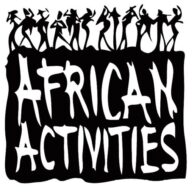
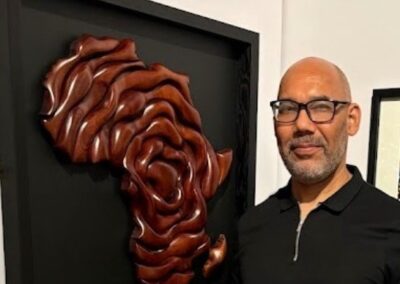
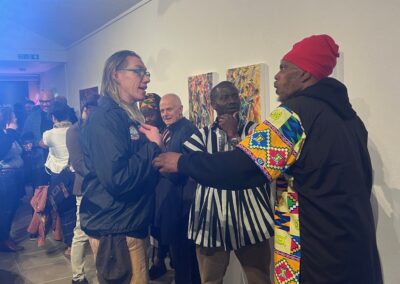
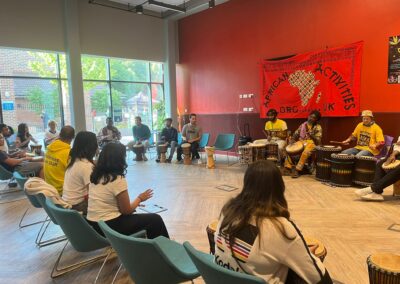
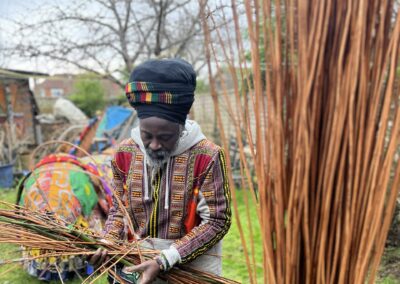
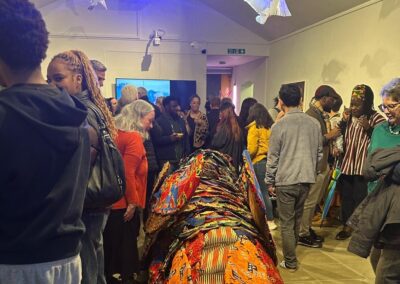
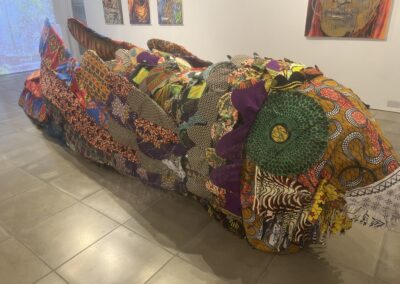
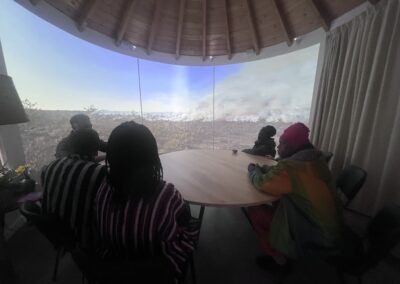
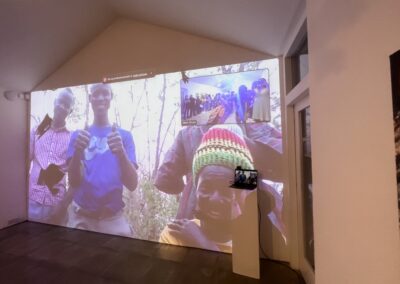
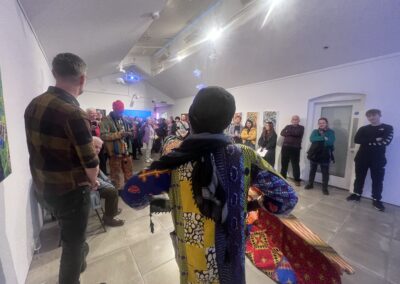
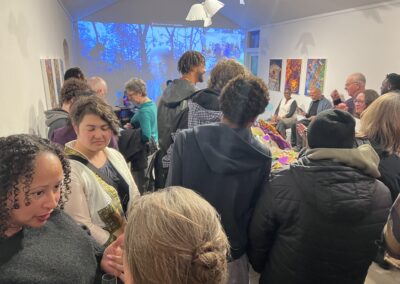
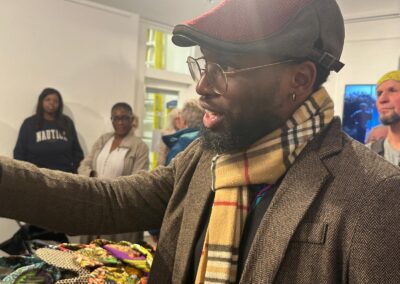
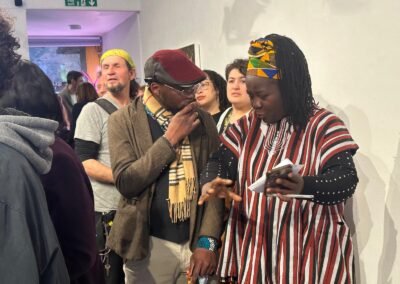
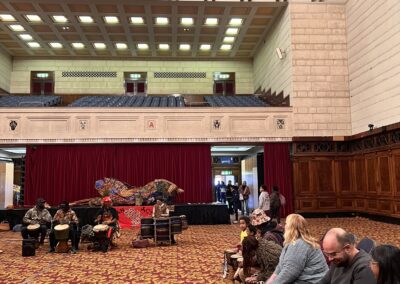
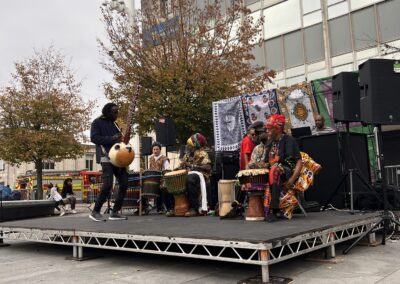
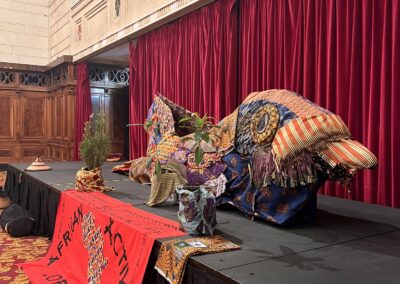


0 Comments